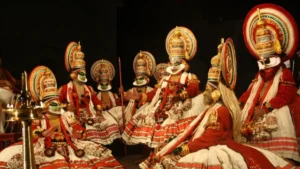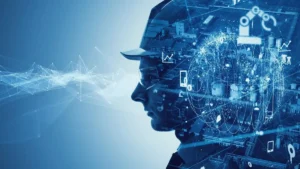The first citizen of India is the president of India. The President of India is elected by an electoral committee composed of elected members of the Parliament, Lok Sabha, Rajya Sabha, and Vidhan Sabha. Till 2021, 14 Indian presidents have served the country as President since the adaptation of the Constitution of India in 1950. The first president of India was Rajendra Prasad.
The President of India should be a citizen of India and the minimum age to be a President is 35 years. He or she should qualify the conditions to be elected as a member of Lok. He or she should not hold any office of profit under the Central Government, State government, or any public authority.
In addition to these qualifications, the President must also be a person of high moral character and integrity. The President is the head of state of India and is responsible for upholding the Constitution and ensuring the smooth functioning of the government. Therefore, it is important that the President is a person who is respected and trusted by the people of India.
Current President of India
Droupadi Murmu, serving as the 15th and current President of India since 2022, is a prominent Indian politician. Elected in 2022 as the Bharatiya Janata Party’s candidate, she made history as the first tribal community member and the second woman, after Pratibha Patil, to hold this esteemed office. Her presidency marks a significant milestone in India’s political landscape.
List Of Presidents of India from 1950 to 2024
The first President of India was Dr. Rajendra Prasad, served the country from 1950 to 1962 and the current President of India is Draupadi Murmu, serving the nation since July 2022.
Here is the list of former Presidents of India from 1950 to 2024:
| Name | Tenure | |
| Dr. Rajendra Prasad | 26 January 1950 | 13 May 1962 |
| Dr. Sarvepalli Radhakrishnan | 13 May 1962 | 13 May 1967 |
| Dr. Zakir Hussain | 13 May 1967 | 3 May 1969 |
| Varahagiri Venkata Giri | 3 May 1969 | 20 July 1969 |
| Varahagiri Venkata Giri | 24 August 1969 | 24 August 1974 |
| Fakhruddin Ali Ahmed | 24 August 1974 | 11 February 1977 |
| Neelam Sanjiva Reddy | 25 July 1977 | 25 July 1982 |
| Giani Zali Singh | 25 July 1982 | 25 July 1987 |
| Ramaswamy Venkataraman | 25 July 1987 | 25 July 1992 |
| Shankar Dayal Sharma | 25 July 1992 | 25 July 1997 |
| Kocheril Raman Narayanan | 25 July 1997 | 25 July 2002 |
| Dr. A.P.J. Abdul Kalam | 25 July 2002 | 25 July 2007 |
| Pratibha Patil | 25 July 2007 | 25 July 2012 |
| Pranab Mukherjee | 25 July 2012 | 25 July 2017 |
| Shri Ram Nath Kovind | 25 July 2017 | 21 July 2022 |
| Draupadi Murmu | 21 July 2022 | Working |
Indian Presidents in Brief
The President of India is the head of state of India and the commander-in-chief of the Indian Armed Forces. The President is elected by an electoral college consisting of the elected members of the Parliament of India, the Lok Sabha, Rajya Sabha and Vidhan Sabha. The President is also the head of the executive branch of government and has the power to appoint the Prime Minister and other ministers. Here is a list of the Presidents of India from 1950 to 2023:
Rajendra Prasad
The first president of India was Dr. Rajendra Prasad who worked as president for two terms. He was also the president of the constituent assembly and the chief leader of the Indian Independence movement. He was awarded the Bharat Ratna in 1962.
Sarvepalli Radhakrishnan
Dr. Sarvepalli Radhakrishnan was a philosopher and writer. His birthday is celebrated as teacher’s Day on 5th September every year in India. He was also the vice chancellor of the Andhra University and Banaras Hindu University.
Zakir Hussain
Dr. Zakir Hussain became the first Muslim president of India and died at his post. He was the recipient of the Padma Vibhushan and Bharat Ratna awards. He was the shortest serving president of India.
Varahagiri Venkata Giri
V.V. Giri was the first president of India and his full name was Varahagiri Venkata Giri. He was the only person to be elected president as an independent candidate. He was awarded Bharat Ratna in 1975. He was elected as the Vice president of India in 1967 and served as the President of India for a short term due to the sudden death of Zakir Hussain.
Fakhruddin din Ali Ahmed
Fakhruddin din Ali Ahmed was the fifth President of India and was the second President who died in his post president.
Neelam Sanjiva Reddy
Neelam Sanjiva Reddy was the 6th President of India and he was the first chief minister of Andhra Pradesh. He was directly elected for the post of Lok Sabha speaker and he was the youngest president who occupied the Rashtrapati Bhavan he also contested for the post of president twice.
Giani Zail Singh
Giani Zail Singh was the first Sikh President of India and he was also the chief minister of Punjab and the Minister at the center. During his presidency, many important incidences took place in India such as operation Blue Star, The assassination of Indira Gandhi, and the anti-riots of 1984.
R. Venkataraman
Venkataraman was the 8th president of India. He was the vice president of India from 1984 to 1987. He received ‘The Tamra Patra award for his contribution to India’s freedom struggle. He also received many honors from different parts of the world.
Dr. Shankar Dayal Sharma
Dr. Shankar Dayal Sharma is the 9th President of India. He was also the chief minister of Bhopal and was Cabinet Minister from 1956 to 1967.
K.R. Narayana
K.R. Narayana was the first Dalit president and the 10th president of India. He was the first Malayali person to receive the highest office in the country and was the first President to vote in Lok Sabha elections and address the state assembly.
Dr. A.P.J Abdul Kalam
Dr. A.P.J Abdul Kalam was the first scientist who became the President of India and he was also known as the missile man of India. He was the first President who won the most votes in the history of presidential elections. In 1997 he was awarded Bharat Ratna.
Shrimati Pratibha Singh Patil
Shrimati Pratibha Singh Patil was the first female President of India. Before that, she was the governor of Rajasthan, and from 1962 to 1985 he was a member of the Maharashtra Legislative Assembly 5 times. She was the first woman president to fly Sukhoi.
Pranab Mukherjee
Pranab Mukherjee was the 13th President of India and was the finance minister in the central government before contesting the presidential elections. In 1997 he was awarded the best parliamentary award and Padma Vibhushan India’s second highest civilian honor in 2008. On 31st August 2020, he died at the age of 84.
Ramnath Kovind
Ramnath Kovind was the 14th president of India. He was an Indian lawyer and politician he became the President of India on 21st July 2017. He served as a respectful member of the Bharatiya Janata Party and he is the former governor of Bihar.
Draupadi Murmu
Draupadi Murmu is the 15th President of India and she is the second female President of India. Apart from this, she is the first tribal woman to become the president of India. She has been appointed as the President of India after the announcement of the results of the presidential elections on 21st July 2022.
Facts about the President of India
- The President of India is the head of state of the Republic of India.
- The President is elected by an electoral college consisting of members of both houses of Parliament and the state legislatures.
- The President’s term of office is five years.
- The President can be removed from office by impeachment by Parliament.
- The President has the power to appoint the Prime Minister, the Chief Justice of India, and other judges of the Supreme Court and High Courts.
- The President also has the power to dissolve Parliament and call for fresh elections.
- The President is the commander-in-chief of the Indian armed forces.
- The President is also the guardian of the Constitution.
President’s Election
President Electoral Process
- Nomination: The nomination process for the President of India election is governed by the Presidential and Vice-Presidential Elections Act, 1952. A candidate must be a citizen of India, must have completed the age of 35 years, and must be eligible to be elected as a member of the Lok Sabha.
- Scrutiny of Nominations: The nominations filed by the candidates are scrutinized by the Returning Officer, who is appointed by the Election Commission of India. The Returning Officer may reject a nomination if it is found to be invalid.
- Withdrawal of Candidatures: Candidates are allowed to withdraw their nominations up to a certain date before the election.
- Polling: Polling for the President of India election is held by secret ballot. The elected members of both houses of Parliament and the MLAs of the states and territories vote in the election.
- Counting of Votes: The votes are counted by the Returning Officer and the result of the election is declared.
Qualifications for the President of India
To be eligible to be elected as the President of India, a person must:
- Be a citizen of India
- Be at least 35 years of age
- Be qualified to be elected as a member of the Lok Sabha (the lower house of parliament)
- Not hold any office of profit under the Government of India or any state government or any local authority or under any institution controlled by them
- Not be a member of any legislative body
The President of India is the head of state of India and the commander-in-chief of the Indian Armed Forces. The President has a number of powers and duties, including:
- Appointing the Prime Minister and other Council of Ministers
- Summoning and proroguing the Parliament
- Giving assent to bills passed by the Parliament
- Granting pardons
- Issuing emergency ordinances
- Declaring war and peace
The President is also the supreme commander of the Indian Armed Forces. The President appoints the Chief of the Army Staff, the Chief of the Naval Staff, and the Chief of the Air Staff.



 Which Dance Form is known as the Ballad ...
Which Dance Form is known as the Ballad ...
 Which Musical Instrument is known as the...
Which Musical Instrument is known as the...
 Which District is known as the Engineeri...
Which District is known as the Engineeri...








